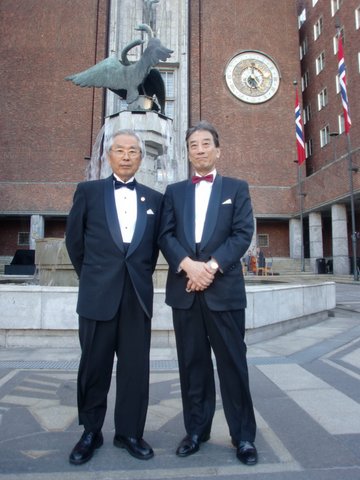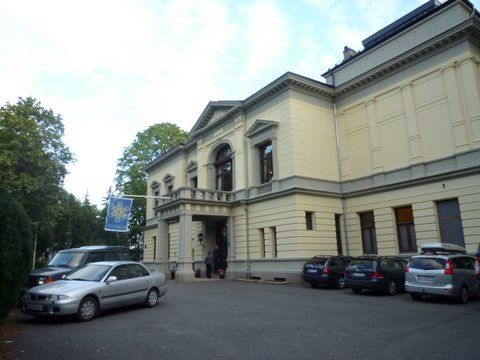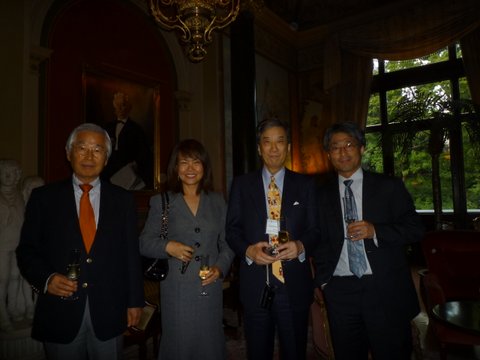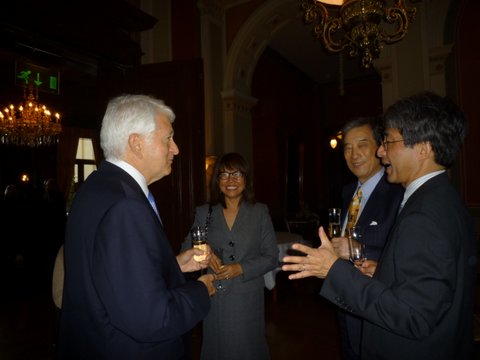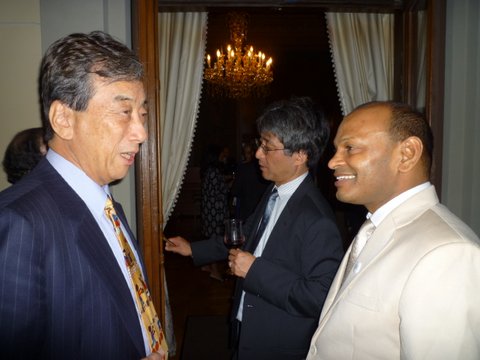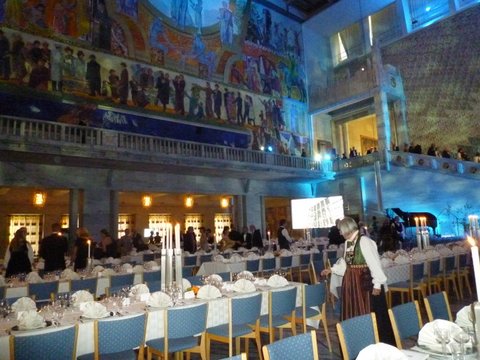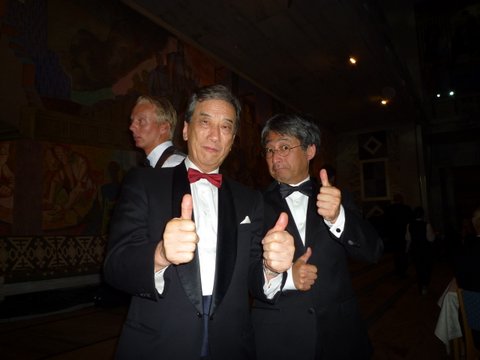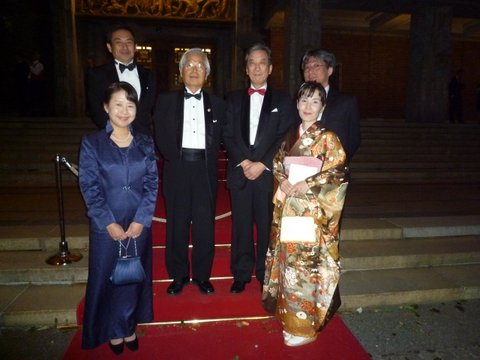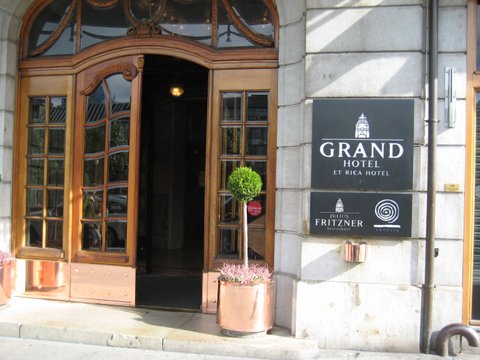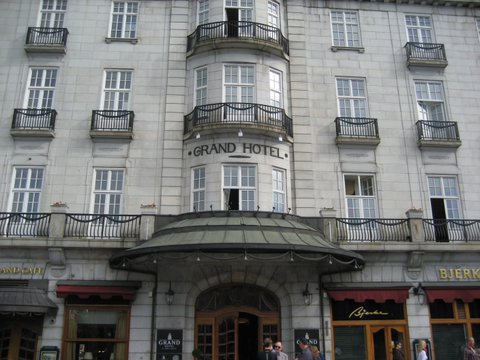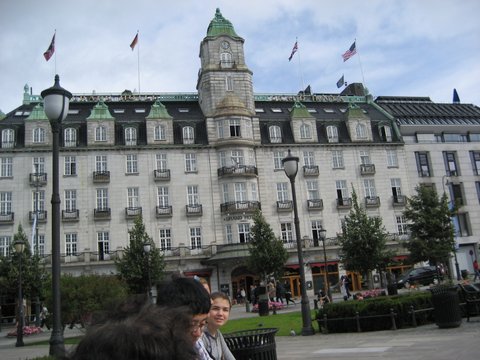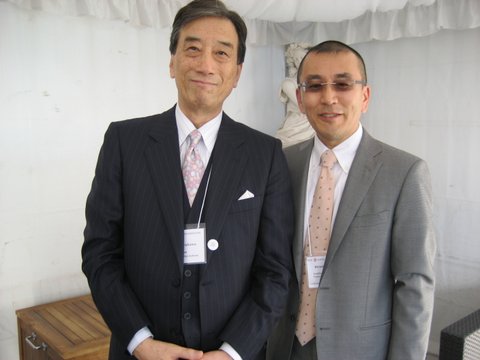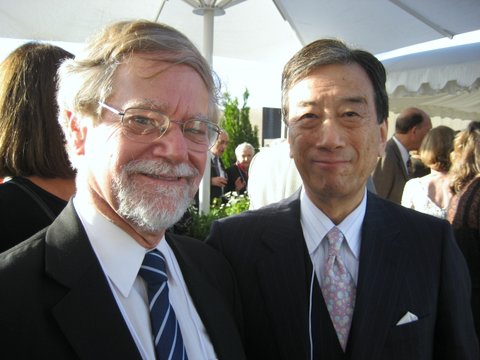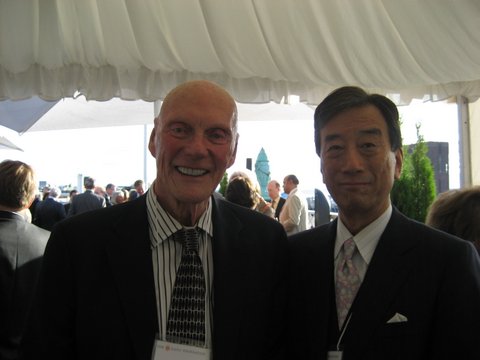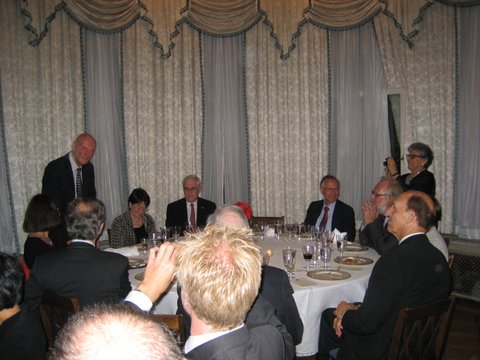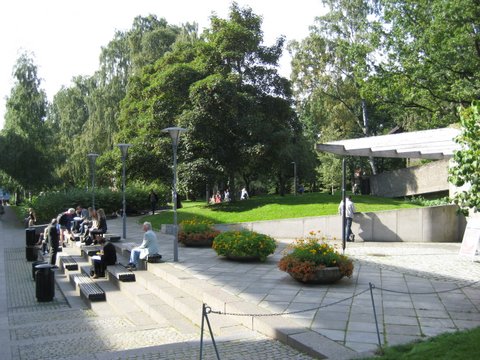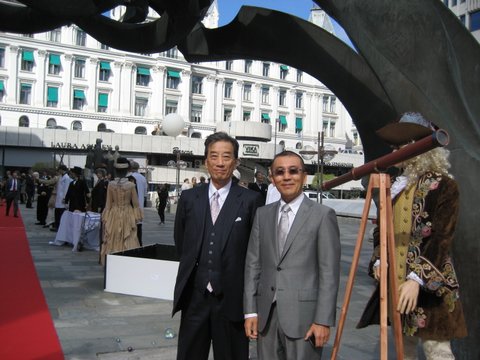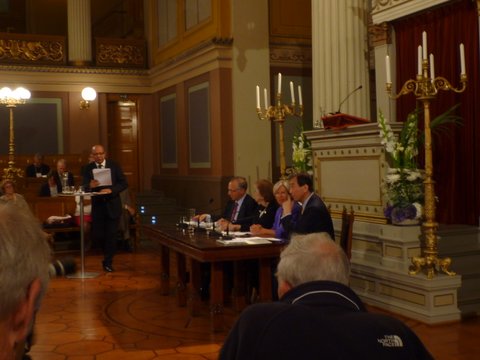On the afternoon of the 4th, I attended the Kavli Award Ceremony, held at the Oslo Concert Hall. The King of Norway was also present and it was a marvelous ceremony. The moderators were the actor Alan Alda, who is well known in Japan and has been active in making science easier to understand, and the Norwegian artist and politician Ase Kleveland. Furthermore, young artists of many genres were included and appeared throughout the ceremony.
This is also available for viewing online ( 1,2 ). The ceremony proceeded at a very upbeat tempo. It made me wish to plan such a ceremony someday.
At times, the King and the artists who were on stage (in addition to singing to classic, jazz and rap there was dancing) were very close in proximity, a sense of closeness that would be unimaginable in Japan.
Overall, there was a strong spirit of encouraging young people, impressing upon me the feeling of something very special about this country.
At night was a banquet at the Oslo City Hall, hosted by the government of Norway. The King also attended the banquet and sat at the main table with ease. There were many performances and singing by the chorus, festive and enjoyable without putting on airs.
During these four days, I encountered a distinct country insistent with her own heritage yet full of wisdom, and at the same time connected and compassionate.
Tomorrow, I will leave for Bergen early in the morning. Having come this far, I will go one step further and visit Bergen.
